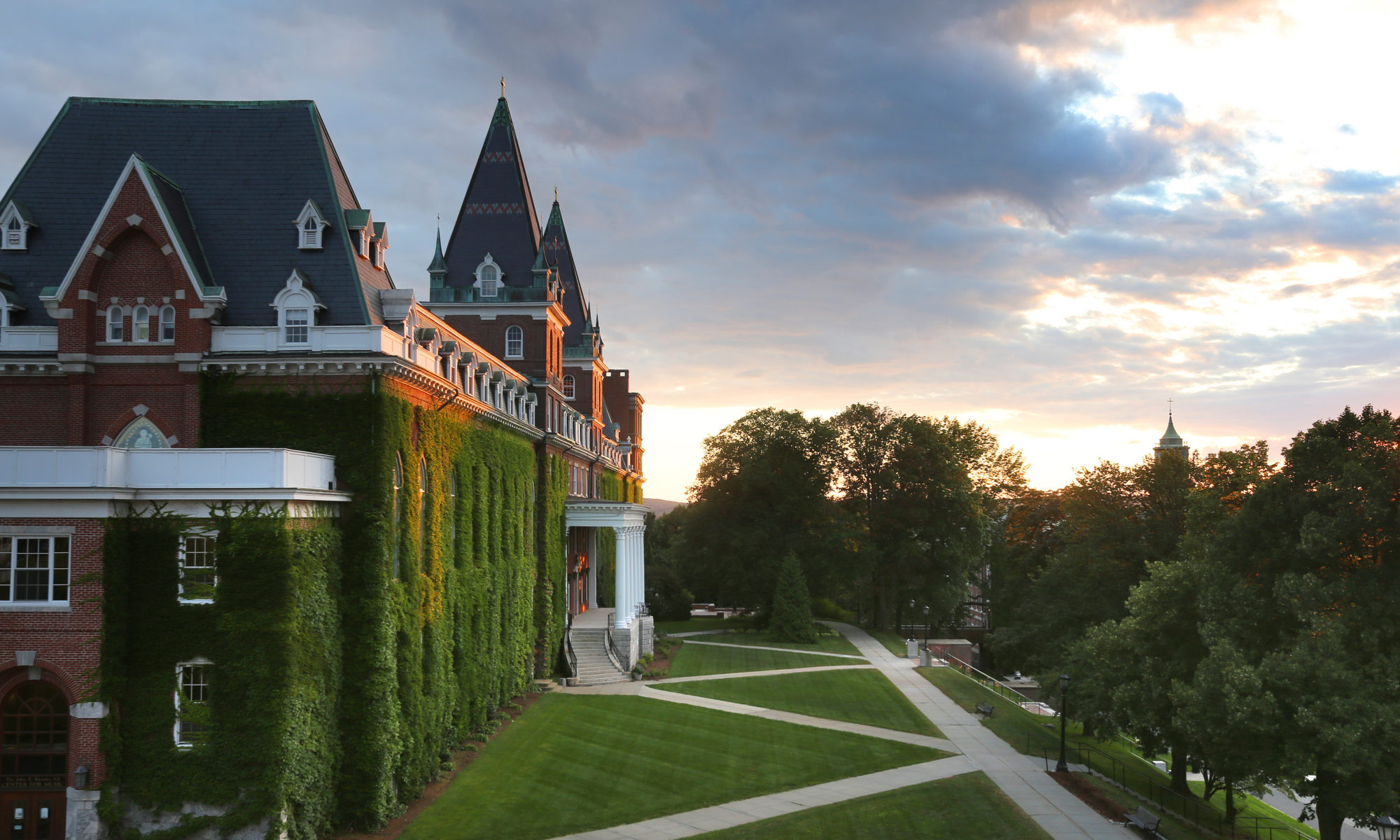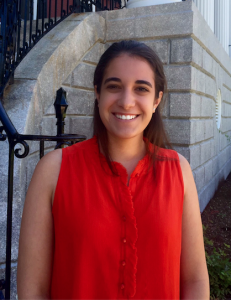Have you ever thought about how you can make the most out of your summer breaks during college? Throughout the summer, we will be highlighting current Holy Cross students in our “Sader Summer Scoop” series to show some of the great summer opportunities students take advantage of. Whether they spend a few weeks in a foreign country during a Maymester program, do research with a member of our faculty, or have an internship in their future field, Crusaders are able to further their education in a variety of ways. To kick off our summer series, Fiona Busser ’19 gives us insight into the Weiss Summer Research Program in the Genetics Lab!
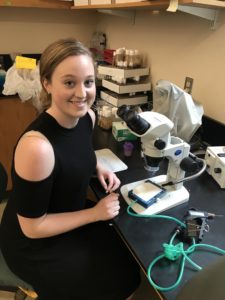
Name: Fiona Busser
Major/Minor/Concentration: Biology Major/Philosophy Minor/Pre-med track
Graduation Year: 2019
What are you doing this summer?: Research
What exactly are you doing?: I am participating in the Weiss Summer Research Program in the Genetics lab of Prof. Geoff Findlay of the Biology Department. I work in our lab on the first floor of O’Neil Hall. We as a lab work with the model organism Drosophila melanogaster (fruit flies) and specifically study the genetics and reproduction of this species. My project investigates a highly conserved gene called Enkurin in order to characterize its function and role in reproduction.
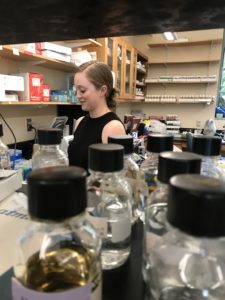 How did you hear about this opportunity?: I knew as an incoming student that involvement in research as an undergraduate student is a benefit that comes along with Holy Cross being a purely undergraduate institution. As I progressed further in my studies within the Biology department, I began to then hear more and more about the research labs and the Weiss Summer research program here at Holy Cross. I then began working in this particular lab the past semester and was then fortunate to continue my work this summer.
How did you hear about this opportunity?: I knew as an incoming student that involvement in research as an undergraduate student is a benefit that comes along with Holy Cross being a purely undergraduate institution. As I progressed further in my studies within the Biology department, I began to then hear more and more about the research labs and the Weiss Summer research program here at Holy Cross. I then began working in this particular lab the past semester and was then fortunate to continue my work this summer.
What are you most excited about doing within this program?: I am really excited about the amount of time that I have to make a lot of progress on my project. It is always rewarding when we make a breakthrough in the project that moves us along to the next step, or teaches us something new. Having nine weeks to focus on research and learn new procedures and techniques is a huge benefit so that once the school year begins again I will have new skills that will allow me to continue working at a pace that will result in a fair amount of progress being made. I am also excited to learn more about what other labs work on, wither through faculty presentations or from talking with the many other students that are on campus performing various types of research—both in the sciences and in other disciplines.
What are you hoping to gain from your experience?: I hope to not only gain more experience in a laboratory setting, but I also hope to gain a better sense of the collaborative nature of science. By working with both professors and other students, as well as working in conjunction with a lab at UMASS Medical School where my specific project originated, I hope to fully appreciate how the scientific process is dynamic, collaborative, and a well-rounded educational experience. I believe that through the summer research program I can bolster the ways in which I articulate my project, as well as present myself to different audiences all while learning so much from others.
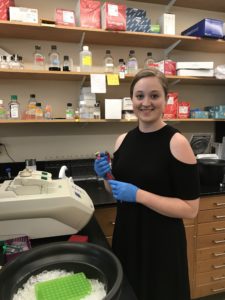 Do you have any advice for prospective students thinking about doing research?: Don’t be afraid to approach professors early on! If you are interested in a particular field of interest that a certain professor specializes in or works on, feel free to go and speak to them about what they do. Not only do they appreciate when students are interested in learning more about particular topics outside of the classroom, but showing an interest and following that up with conversation and certain courses can readily turn into a research position, either during the summer or also during the regular academic year.
Do you have any advice for prospective students thinking about doing research?: Don’t be afraid to approach professors early on! If you are interested in a particular field of interest that a certain professor specializes in or works on, feel free to go and speak to them about what they do. Not only do they appreciate when students are interested in learning more about particular topics outside of the classroom, but showing an interest and following that up with conversation and certain courses can readily turn into a research position, either during the summer or also during the regular academic year.
When you were in high school, did you expect to have this opportunity in college?: I did not expect to have such a great opportunity as performing such interesting and involved genetics research as an undergrad when I was back in high school. I was not even sure if research was something that I would enjoy, or even want to try. I am so grateful for the opportunities at Holy Cross to expand my learning and to try things that I never expected as now I cannot imagine finishing my biology education without the research I am currently participating in.

